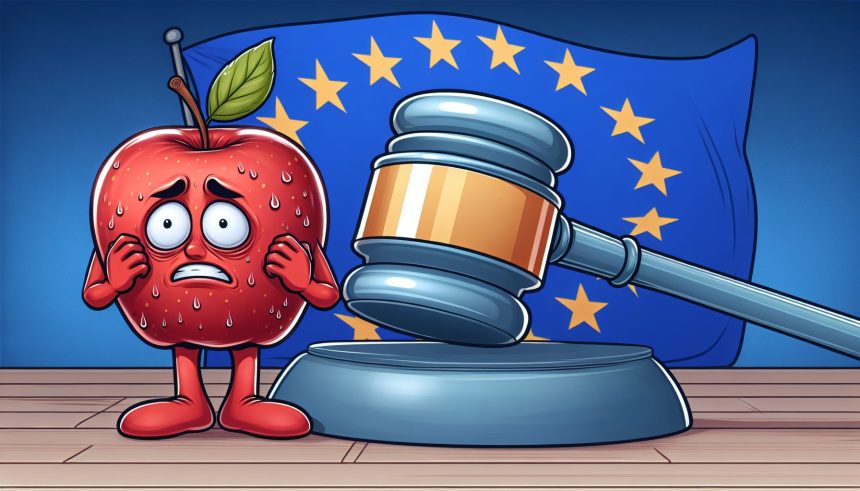Apple Inc., a prominent global technology corporation, is under threat of heavy penalties for their alleged non-compliance with the European Union’s (EU) Digital Markets Act (DMA). The EU alleges that Apple breaches the DMA through the practices of its App Store, which is intended to encourage fair competition within the market.
If Apple is proven guilty, potential fines could equal up to 10% of their global annual revenue. Further non-compliance could yield regular penalties affecting the tech giant’s profitability.
Apple fervently rejects these allegations, promising to defend its commercial tactics. The tech industry watches with keen interest, as this judgement could set a precedent for other international corporations.
The DMA brings forth rules for firms identified as “gatekeepers,” a label applicable to Apple due to the dominance of its App Store.
EU probes Apple’s alleged market abuses
Such entities must ensure fairness and inhibit competition stiffing actions. It calls for transparency, provisioning an equal playing ground for all digital market stakeholders.
Apple’s proposed alterations, such as a Core Technology Fee for apps on platforms other than the App Store, have been negatively received due to their complexity and seemingly inflationary impact on developers’ costs. Critics believe that these changes pose a threat to innovation and economic viability amongst app developers.
Apple’s significant 2023 global turnover ($383 billion) makes its potential fines substantial, reaching up to $38 billion, and doubling in the scenario of repeated violations.
Lastly, the EU demands “gatekeepers” provide users with a choice of web browsers. Despite Apple stating adherence to this requirement, the EU has expressed dissatisfaction with certain aspects of their proposed approach.
While these types of investigations are typically time-consuming, the intent is to conclude the investigation within the following year with emphasis on thoroughness and justice.







